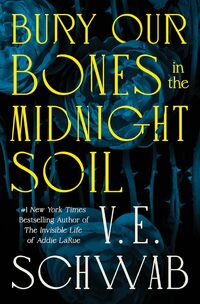 BURY OUR BONES IN THE MIDNIGHT SOIL |
|

Being Married to a Werewolf Gives New Meaning to the Words "High Risk Relationship."
Abra Barrow #1 SHE KNOWS WHERE THE WILD THINGS ARE. Manhattan veterinarian Abra Barrow has more sense about animals than she has about men. So when her adored journalist husband returns from a research trip to Romania and starts pacing their apartment like a caged wolf, Abra agrees to move with him to a rural mansion upstate in order to save her marriage. But while there are perks to her new life, particularly in the bedroom, Abra soon discovers that nothing in the bucolic town of Northside is what it seems. The local tavern serves a dangerous, predatory underworld. Her husband has developed feral new appetites and a roving eye, and his lack of humanity isn’t entirely emotional. As the moon waxes full, Abra must choose between trusting the man she married, taking a chance on a seductive stranger, or following her own animal instincts. Excerpt Chapter 1 There are many different Manhattans. Which one you happen to live in depends partly on geography and partly on perception. I live on the Upper West Side, in the midst of an eccentric animal kingdom. In my Manhattan, people like their animals big: aristocratic hunting dogs with wide, soft mouths, overfed guard dogs and pit bull mixes, sled dogs that have kept the look of a wolf about them. These are large animals for large apartments: six- room prewars, with a couple of children and possibly a weekend home in the Hamptons. Nobody has time to go jogging with the dog anymore, and the nanny refuses to pick up feces from the sidewalk, so a walker is hired. Elsewhere, on the East Side, are toy breeds with their adorably hydrocephalic heads. The own ers are older; the children have grown up and been replaced by skittish canine midgets with the appeal of perpetual infancy. Downtown are the elaborately designed fashion victims, entrancingly ugly breeds with faces wreathed in wrinkles, their noses squashed up between their eyes. They are dragged behind their fit and fabulous own ers, panting from their deformed jaws. And then there are the exotics: lizards, parrots, rabbits, the odd squirrel monkey or de- glanded skunk. I don’t usually see these outside of work, but then, they’re not my specialty: They belong to someone else’s Manhattan. So I suppose I was a little startled to see the man with the baby barn owl on his shoulder, although not as surprised as the other subway riders. The man had a quality of alertness about him that didn’t quite seem to match his appearance. He had that look you get from sleeping rough: T-shirt not quite clean, the worn cotton molded to his wiry chest. I noticed that the man’s eyes were a pale hazel, almost yellow, as he kept moving his gaze around the subway car, careful not to make eye contact with anyone. I wondered where he had found the little gray bird, which had sunk into itself, but stopped myself from asking him. Most people think they’re rescuing owlets when all they’re really doing is stealing the baby on its first day out of the nest. My friend Lilliana can explain this to people and they’ll frown and say they had no idea, but when I open my mouth, people tend to get red in the face and become defensive. The little owl huddled closer to the man’s neck and he reached back and patted it, shifting his other hand from strap to pole. A blond businesswoman sidled away and I saw the man notice. Then, for a moment, the man met my eyes, a halfsmile on his lips, as if he had something amusing to impart. I turned away from him, because I don’t approve of people wearing animals as accessories. Particularly wild creatures, which are far more delicate than you might think. I knew this because we get the odd raptor at the Animal Medical Institute. We’re the only veterinary ser vice in the New York area that caters to exotics, so we’re pretty much the only game in town if your anaconda loses its appetite or your parrot breaks its foot. We’re also the only place in the tristate area that can do dialysis on cats and the best place to give your dog chemo. But somehow I didn’t think the raggedy man was taking his little pal in for a checkup. I was wondering if I owed it to the owl to intervene when the subway screeched to a stop and the doors opened. There was a reshuffling of bodies and I realized that the person pressing against my back had gotten off, giving me room to breathe again. Reflexively, I lifted my hand to adjust my pocketbook strap, only to find that there was no pocketbook there. I felt a moment of disorientation. Was it possible that I’d left home without it? Had it fallen to the floor? And then, on the heels of these thoughts, the realization: Someone had stolen my bag. I said it out loud, half in disbelief, just as the subway gave a hiss and a jolt, the doors closed, and the train began to move again. I looked around, wildly, as if I expected the thief to still be there. But of course, whoever it was would have gotten off the train. Around me, people were watching with various degrees of sympathy, alarm, and disinterest. I met the raggedy man’s eyes and he gave a little shrug as if to say, Sorry, but it wasn’t me. A heavyset woman with a vast ledge of a bosom patted my shoulder, and there were murmurs from the other women and some of the men. “What happened?” “Somebody stole her bag.” “Didn’t you feel anything?” I shook my head. “I didn’t feel a thing.” I felt a rising panic as my fellow passengers checked their own bags and briefcases and wallets. But they were fine, while I was suddenly stranded without money, credit cards, cell phone, and keys. I tried to remember how much cash I’d been carry ing. Crap. I’d just gone to the bank yesterday after work. “They carry knives,” said a thin teenage boy, his oversized jeans hanging off his hips and revealing white boxers. “They just cut right through the strap, and bam–emergency surgery on your finances.” He looked at me with mock concern, aglow with his own cleverness. For a moment, I suspected the cocky boy of being the pickpocket, and then I turned, feeling the owl man regarding me with heavily lidded eyes and a cynical halfsmile. He knew what I was thinking, and I could hear his judgment of me as if he’d said it out loud: racist. As if the color of the boy’s skin had anything to do with my momentary suspicion. Flushed and embarrassed, I turned away. I realized with a clench of anger that the man had been observing me for a while–he might even have witnessed my being robbed without bothering to warn me. My heart pounding, I felt a wild urge to accuse him. He met my eyes as if he could read this thought as well, and then the subway lurched to a stop. Without actually making a decision, I found myself pushing through the crowd to get off. On the subway platform, I tried to think things through. I was already going to be late for rounds, but I couldn’t wait till lunchtime to cancel all my credit cards. And whoever had taken my bag had my house keys along with my address. I had to tell my husband to change our locks. Reflexively, I reached for my cell phone before remembering that of course, I’d lost that, too. I made my way back to the station agent, who was hiding behind the Plexiglas, pretending to be deaf. “I’m sorry,” I said, trying to keep the note of hysteria out of my voice, “but my purse was just stolen. Do you think I could borrow your phone to make a local call?” “I’ll make the call for you,” said the woman, apparently thinking this was some elaborate ruse to bilk the MTA. Maybe I should have gone for more hysteria. I told her my number and waited as she lethargically dialed my home. “Nobody’s home.” She regarded me with blank indifference. “He is home, he’s just sleeping the sleep of the seriously jet- lagged. Can you please try again?” My husband had just come back from Romania last night looking ill from fatigue, a good fifteen pounds thinner than I’d ever seen him before. The station agent stared at me for a moment, as if weighing her options. In the end, she redialed the number, using a pen to protect her inch- long nails. Hunter, I prayed, please wake up and answer the phone. I hadn’t been expecting him for another week, and had nearly jumped out of my skin when he walked in the door as I was eating day- old Thai food from the carton with my fingers. He’d been sick with a stomach bug, he’d explained, and had changed his ticket. No, he didn’t feel up to giving me the details just yet, and yes, if he needed a doctor he’d call one. His tone implied we were having an argument, and mine implied I hadn’t noticed. I’d gone to bed at eleven and actually fallen asleep fairly quickly, an unusual occurrence for me. I had no idea when Hunter joined me, but at three a.m., when I woke up, he was on my right, snoring lightly from his attractively once- broken nose. For a moment I had wished him gone again, so I could pamper my chronic insomnia without restraint–turning the lights on, surfing the tele vi sion, eating breakfast cereal in bed. Then he had spooned his body around mine, a rare intimacy, and I had felt his warm breath on the back of my neck. Savoring the closeness, I had remained motionless while my left arm fell asleep and he began to snore again. I hated to bother him now, and knew he’d probably be irritated at first, but he’d understand once I explained what had happened. “Still not home,” said the station agent, hanging up the phone. “You want to talk to the police about the theft of your personal possessions?” “No,” I said, disconsolate. “Could you just let me back through the turnstile so I can go home?” The station agent buzzed me through and I retraced my steps in a sort of daze, making my way to the downtown platform, then to the crosstown shuttle, which took me back to the West Side, where I could catch the Broadway local. It took me three trains and forty minutes during rush hour to get to work each day. Most of my fellow interns had taken housing near the center, but Hunter hadn’t wanted to give up our brownstone apartment on the Upper West Side. Wishing that there were some way to call my team to let them know why I was so late, I emerged from the subway and headed for Riverside Drive. An unseasonably cool wind was whipping in from the water. It had been the coolest summer in over one hundred years, and now fall seemed ready to bring the curtain down on a lackluster per for mance. As I quickened my pace to a jog, I felt a twinge of cramp low in my left ovary. I was about twenty- five days into my cycle, but I’m not all that regular; I’m one of those women who skip months, then get their periods every three weeks for a while, then start going into a sixweek cycle. Still, I felt that sort of warm looseness in my abdomen that usually heralds the start of things. My gynecologist said that I might find it difficult to become pregnant. I told my husband this last year and he said, It’s probably for the best. I should explain that there is a history of mental illness in Hunter’s family: His mother’s sister became schizophrenic at the age of nineteen and his mother committed suicide when he was a teenager. Hunter is moody, the kind of moody people expect from writers, but he always says he’s not sure he should have children. He spent most of his adolescence wondering if one day madness would explode in him like a time bomb; and I think he worries that if we had a baby, he’d spend the next twenty years waiting to see what might detonate in his offspring. I suppose I’m ambivalent about becoming a mother. I’m not sure I have the vocation for it, and I think my own mother is a good example of what can happen if you have a child without one. I mean, Mom wasn’t quite in the “Mommie Dearest” league, but she did like making scenes. Maybe it’s something to do with being a film actress. Perhaps movie stars, even “B” ones, shouldn’t propagate. In any case, my schedule wouldn’t allow for a baby. I had this year of internship to get through, a residency to apply for, and a husband who was away more often than he was home. Ner vous ly checking my watch, I turned the corner on Eighty- fourth Street and finally reached our building. Hunter and I had spent the past four years living in one of those modest turn- of- the- century mansions that had been subdivided into small apartments, so that the whole structure is like one big dysfunctional family. We lived on the second floor, in the only apartment without a bricked- in fireplace. But we did have a balcony of which we were inordinately proud, even if it was barely large enough to accommodate two chairs and a portable mini- barbecue. What our building didn’t have, of course, was a doorman to let me in. I buzzed our intercom repeatedly, to no avail. I tried the friendly couple of middle- aged men in the garden apartment first, and then the angry family who had the nicer duplex above us. Also not at home. Great. Sinking down onto a floor littered with Chinese take- out menus, I blinked back tears of frustration. Clearly, I should have just gone on to work, but now I was here and unless Hunter let me in I didn’t have the money to get back to the Animal Medical Institute. Of course, I could hike a few miles across the park, but I was probably going to get my period today. Call me prudish, but I don’t feel comfortable going up to other women in a quest for pads or tampons. I don’t even like sitting in a stall talking to another woman, particularly if there’s going to be any grunting involved. I blame my mother. She was so intent on my not being ashamed of my body and its functions that she instilled in me a fiercely beleaguered sense of privacy. And Hunter was in there. All I had to do was rouse him out of his coma. Feeling more than a little desperate, I pressed all the buzzers one last time, then went outside and shouted “Hunter, it’s me” at the top of my lungs while searching around for a rock to throw against our window. And then, looking up at our balcony, I thought: I can just climb up there. Not by going straight up our building–the first floor was faced with 1940s flat yellow brickwork, which didn’t offer a hand- or foothold. But the Victorians who’d designed our neighbors’ place hadn’t worried much about crime. Whoever had built the entrance had arranged foot- long concrete rectangles into a pattern around the black iron- and- glass doors, giving the house a vaguely medieval look. Right under their first- floor terrace was a little black iron lamp, a perfect handhold. Their terrace was only two feet away from ours. A twelve- year- old would have seen this in an instant. Most adults stop looking at the world as something that can be climbed, unless they’re of the breaking- andentering persuasion. But back before I sold my soul to the Animal Medical Institute, I used to do some rock climbing at the Chelsea Piers gym. I’m good at anything that requires methodical attention to detail, and I actually got to the point where I was developing a few muscles in my legs and rear, and was looking a bit less like a loaf of white bread. Then AMI accepted my application for an internship and I lost all semblance of a life. The only obstacle to climbing the ten feet to our balcony was my outfit. Hunter had always said that he had never known a woman who spent as much money on sacks as I did, but I like comfortable clothes in rich fabrics, the sort of thing you could wear to a medieval fair and pass as a rich guildsman’s wife. That day I happened to be wearing my Eileen Fisher wide- legged pants in soft brown cotton paired with a deep gold cotton tunic, not ideal for scaling the facades of buildings, even small ones. I tucked my pant legs into my socks and looked around to make sure no one was watching. Luckily, ours is pretty much a block of opera singers and older people, so the police don’t cruise by too often. It was almost as easy as I had thought. The footholds were generous, almost two inches wide, and I was about twelve feet up, right under the balcony, when I reached the lamp. It was bolted in, solid enough to step on. I suppose I looked like one of those graceless little girls you see in the playground, heaving their sturdy little bodies up the monkey bars, but I got myself over the wroughtiron terrace railing. There was only one bad moment, where I had to balance on the neighbors’ railing before jumping over the two feet onto our balcony. I was about to step over when I heard a dog barking. I looked down to see an overexcited dachshund with a dapper old man attached. The man looked familiar, and I realized he lived in our building. You couldn’t have come home two minutes earlier, I thought sourly. “And what do you think you’re doing, young woman?” “It’s my apartment,” I said. “I live here.” His dog kept yapping. “I should call the police!” “Please don’t. I’m Abra Barrow, your neighbor in 2B.” “Wait a minute, don’t I know you?” He pointed his finger up at me. “The girl. The actress.” “The vet. I’m a vet. My husband didn’t hear the phone, and I lost my key.” “The what?” “The key! Lost the key!” “Thickey?” Another old man, thinner and bearded, joined the first. “What’s she doing? Breaking and entering?” “Nah, nah, it’s her apartment. Husband trouble.” “Hey! You! Girl!” The bearded man sounded angry. “Look, it’s really okay . . .” I started to turn to face him better, lost my grip, and reached over to grab the railing of our balcony. Unfortunately, this left me in the awkward position of having my feet on one building and my hands on the other. “Get your leg over! Your right leg! These kids don’t know how to climb trees, is the problem.” “As a boy, I climbed trees, houses, barns. In Ukraine.” The dachshund gave a little bark of agreement. I stepped over to our balcony, then turned back to the men, who had now been joined by an el der ly woman in a fox- trimmed winter coat. “I’m safe, you guys. Thanks.” “Next time ask us, we’ll let you in. Sidney has all the keys to the apartments in that building,” said the bearded man. I waved. People think the city is big and impersonal. The suburbs, where I grew up, are big and impersonal. The city is a patchwork of tiny provincial villages without clear borders, each with its own yenta, postmodern revolutionary, and idiot. From the street, I heard the old woman ask, “What’s that girl doing up there, Grisha?” “She’s a veterinarian. With husband problems.” Maybe I was the town idiot. I tried our window. Thank God, we’d left it open. I shoved the glass up another foot and climbed inside, and for a moment I stood in our living room, feeling very good about myself. I was the prince scaling Rapunzel’s tower without a hair rope; I was Robin Hood sneaking into the Sheriff’s stronghold. Then, with a start, I realized how very unsafe my apartment was. During the three months that Hunter had been away, I had often left the window open. Until that moment, it had never occurred to me that I was within harm’s way whenever harm might take a notion to come find me. But if a modestly athletic twenty- nine- year-old woman could climb up here and break into her own apartment, then it didn’t take a big bad wolf. Anyone could get in. Distracted by these thoughts, I didn’t immediately notice the strange sounds coming from the bedroom. My initial thought was that Hunter was having a nightmare. He kept uttering little panting groans, punctuated by a soft whimper that sounded almost like a dog’s. I walked toward the bedroom thinking, Maybe I should wake him. Then I heard the rhythmic slapping sound of flesh, and a chill of gooseflesh traveled down my neck. That wasn’t the sound of Hunter having a bad dream. That was the sound of Hunter on the brink of orgasm. 
Our Past Week of Fresh Picks
It’s a thin line between love and love-hating. Katie Vaughn has been burned by love in the past—now she may Read More »
There are no rules this cruel summer…“I think we should see other people…” That one sentence unravels Samantha Parker&rsquo Read More »
THE DEATH MASK From #1 New York Times bestselling author Iris Johansen comes a new thriller starring Eve Duncan as she races against time to protect her beloved Read More »
Set in the art world of 1970s London, The English Masterpiece is a fast-paced read to the end, full of glamour and Read More »
Detective Arkady Renko—“one of the most compelling figures in modern fiction” (USA TODAY)—returns in this tense thriller set amid Read More »
Eat Post Like is a heartwarming debut novel of self-discovery, resilience, and the transformative power of food.Cassie Brooks has her life all Read More »
In this million-copy international bestseller from Korea, the owner of a corner store takes in an unhoused man who does a good deed, a Read More »
From NYT bestselling author Rachel Gillig comes the next big romantasy sensation, a gothic, mist-cloaked tale of a young prophetess forced Read More » |
|
| |||
|
||||




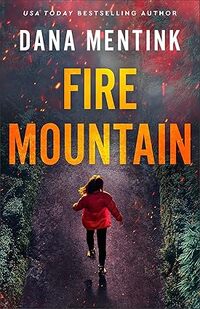


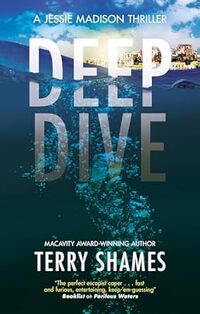

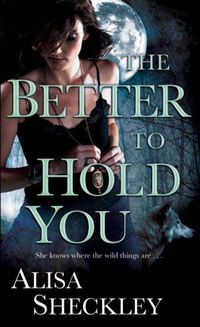





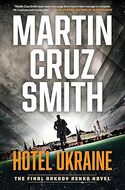

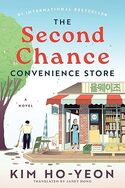
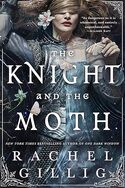
 © 2003-2025
© 2003-2025